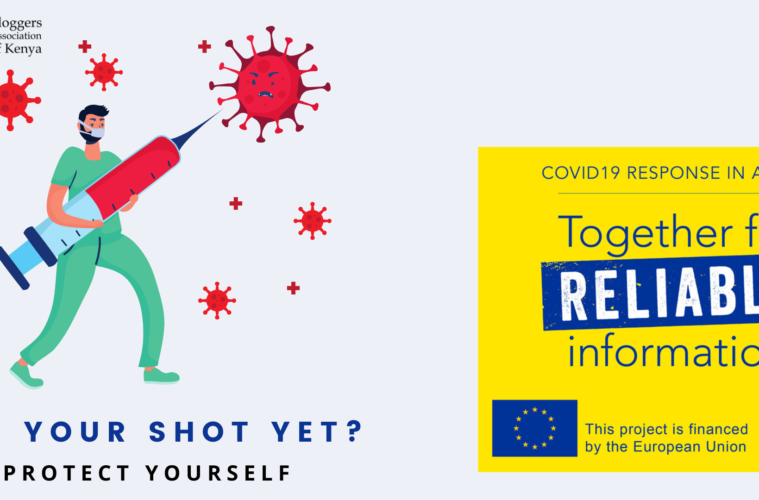Being almost 2 years down, how have we handled the covid-19 situation in Africa?
When the first case of the covid-19 pandemic was discovered in China, to Africa and more of the rest of the world was rest assured it will stay and end in china probably in a few days.
Two years on, the less anticipated disease is a global pandemic that has claimed over 5 million lives. In Africa for instance, the early days of the pandemic were bundled up myths and misconceptions from all over the continent.
As such, we together with the EU in Kenya and the DW Akademie partnered to create awareness on the covid-19 scourge in Africa, curb misinformation and disinformation on covid-19 infections and vaccinations.
Recently, we hosted an event to note how different stakeholders joined hands to mitigate the pandemic and the successful response efforts.
Various issues concerning Covid-19 were noted during the event that could be hindering the seamless covid-19 protocols and even the vaccination process.
For instance, our political leaders have been at the forefront of breaking the measures put in place like social distancing and the ban of political gatherings that have been running around the country even in the pandemic period.
There was a major improvement in stigmatization, more people now understand that the pandemic is just a disease like any other that is treatable unlike the early days of the pandemic where you couldn’t even share with a neighbour about it.
Speaking during the event, Richard Mureithi, one of our speakers who was infected with covid-19 in the early days of the Pandemic said” I was afraid to share with my neighbours and friends about it because of the stigma at the time. Thankfully, I got better”. He further added, ” My experience with covid-19 was very bad. The government did not give out information on what to do to protect yourself and what to do that I feel if people had it, things would have been different.”
Although there have been improvements on the covid-19 response, misinformation and disinformation still is the biggest challenge we are facing especially theories around vaccination that have slowed down the vaccination process in the country.
As we stand, our biggest challenge with covid-19 is misinformation as the biggest barrier that we need to demystify. How to bridge the misinformation gap?
There is a lot of disinformation and misinformation around the covid-19 pandemic that includes hazardous self-medication techniques that we need to demystify.
Africa Check took up the steps to demystify fake news around the pandemic. So far, they have trained journalists on how to report the right COVID-19 and tools where to get credible information on COVID-19 and even check image sources prior to posting them.
“To bridge the misinformation gap, We took up the steps to demystify fake news. we trained journalists on how to report the right covid-19 and tools where to get credible information on Covid-19” Silvia Makinia Africa Check
What can we do to create more awareness on vaccination and mitigate fake news?
While the Ministry of Health has succeeded fully in implementing the measures, we all ought to bring together the efforts to combat the pandemic in Kenya. Efforts towards a course however small they are can impact a part of our lives.
For instance, James Ouma the founder of Lifesong Kenya started a project to feed families in communities he works during COVID-19 despite lacking funds, but his friends raised money to spearhead the project.
Another project included working with boys in prison, feeding the low-income families during the pandemic and teaching the families to work and live within a very limited budget.
“We wanted to do something just beyond charity and our efforts were geared towards offering skills and advise on what to do to sustain their families even post the pandemic- James Ouma.”
As content creators, we also need to create news content that is credible and something the audience can easily understand.
There were calls for the need of the Ministry of Health to work closely with the private sector to develop a comprehensive framework that ensures other safer vaccines are purchased, approved, and supplied to Kenyans that can afford them at reasonable prices. Members noted that getting vaccinated is the first step towards protecting each other hence one must make a point to get one.
The Panelists generally agreed that it is not yet time to let our guard down. We must mask up! and if in doubt, get checked.

